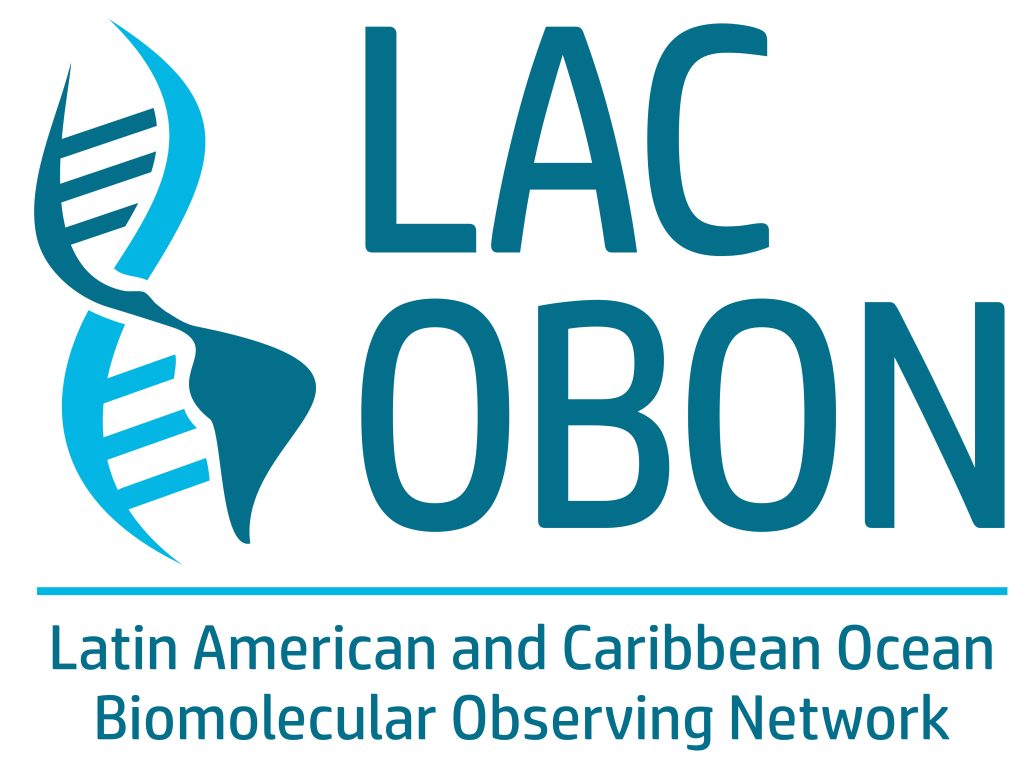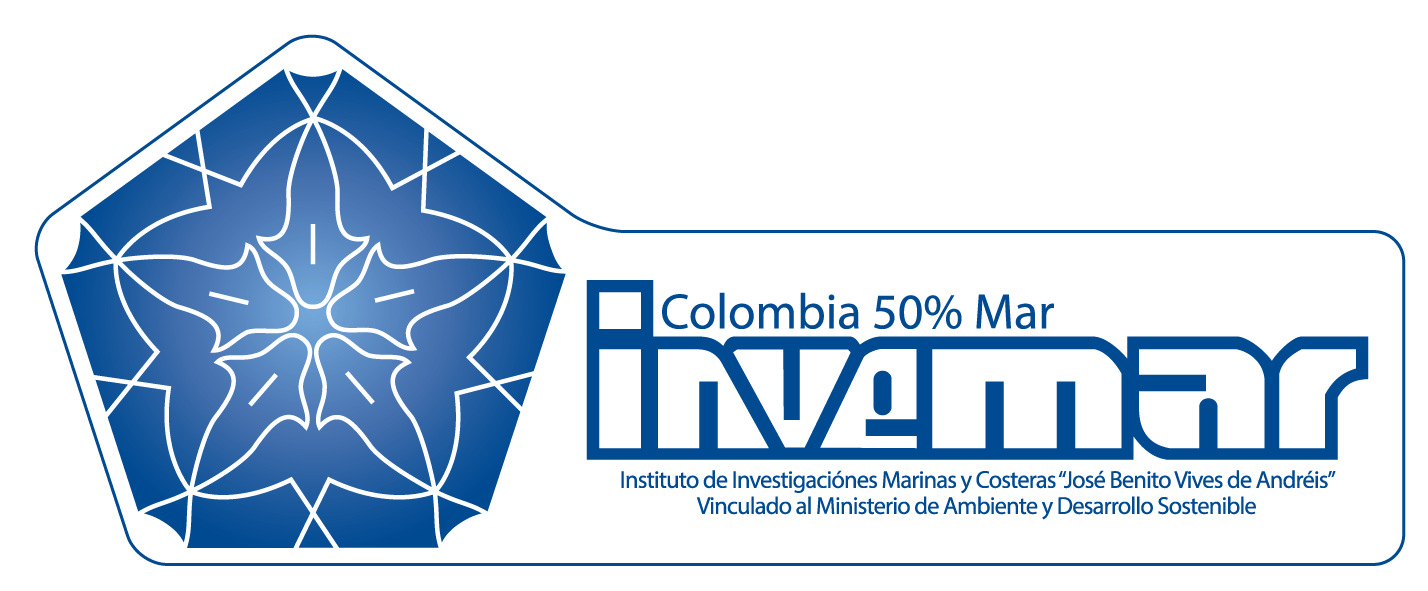Latin American and Caribbean Ocean Biomolecular Observation Network

For 2023, in addition to the normal annual call, POGO invited groups of members to apply for seed funding for programmes/projects either already endorsed by the UN Ocean Decade, or workshops to plan new project/programmes to be submitted to UNDOS for endorsement. The activity below is one of two successful proposals for this round of funding.
Overview
Background and rationale
The use of environmental DNA (eDNA) is revolutionizing the monitoring and estimation of marine biodiversity at a broader scale since it allows the detection of the diversity of species using molecular tools. This eDNA refers to the genetic material that can be extracted from environmental samples, such as soil, water, and air. These samples contain a mixture of genomic DNA from different organisms, generally degraded and in low concentration, and it represents a cost-efficient tool for biomonitoring biodiversity as well as potentially allowing early detection of human or environmental-driven changes in the ecosystems.
In the Caribbean Region, this technique has been used to establish shark diversity in contrasting levels of anthropogenic impact, to monitor tropical reef fishes, determine microbial diversity and distribution of shallow and deep water systems, as well as to validate the detection of invasive Caribbean freshwater and marine fishes, among others. In particular, Colombia has participated in several research expeditions using this technology since 2018 with the Monaco Explorations Megafauna Project in the Atlantic – Caribbean Sea Mission funded by the Principality of Monaco, which aimed to improve the fish reference database on a worldwide scale using eDNA analysis.
Due to the great potential, increasing robustness, and diverse applications of this technique and thanks to the support of the French Government under the FASEP funding, INVEMAR and SPYGEN developed the first patented eDNA laboratory in Colombia with the highest quality standards in the field and capacity to lead biodiversity monitoring strategies. This laboratory gives autonomy to the region in the creation of the strategies to address country-level biodiversity problematics using eDNA. Since then, INVEMAR committed to stablish a marine eDNA monitoring network with different partners across the Latin-American and Caribbean region, and to contribute to the capacity development and support the regions autonomy on the field of eDNA technology. As a result, INVEMAR is constantly seeking for national and international resources to allow us fulfill our fundamental goals.
Relevance to UNDOS
This project is already an endorsed UNDOS Action: “Gain knowledge to respond to multiple stressors” led by INVEMAR
The Project will mainly address “Challenge 7. Expand The Global Ocean Observing System”.
Although several partners are participating in UN Decade projects and programs, as far as we know, there is not a single initiative within the Caribbean region aiming to address the biodiversity crisis facing the ocean that focuses on targeted actions using environmental e-DNA technological innovation as a mayor engine to fill biodiversity knowledge gaps.
Within the Marine Life 2023 Action, a network of networks, the Tropical Americas and Caribbean Regional Planning Group – Colombia, is developing a regional plan for implementation of the UN Ocean Action Gain knowledge to respond to multiple stressors, in which the marine eDNA monitoring network in the Caribbean is identified as a regional need.
During preliminary workshops (TACR Regional Planning Group, July – October 2021), key oceans-related research priorities were identified and it was recognized that to manage multiple stressors, there is a need for observations on marine and coastal life and related socio-economic impacts.
Throughout this research project, we also seek to assess and implement a monitor framework for marine biodiversity, overarching the CBD Kunming Montreal Global Framework Goal A targets to address the biodiversity crisis facing the ocean.
The creation of ocean-based monitoring strategies in the Caribbean region would allow rigorous observations and systematic documentation of biological, chemical, physical, geological, and archaeological aspects of the ocean, and the potential findings made through eDNA detections could be fundamental for the reduction of unknowns, providing information to address both the current scientific and economic needs, as well as emerging ones.
Relevance to POGO and fit with POGO’s Strategy
Enhanced and coordinated regional biological sea observations are essential for a better understanding of the status and trends from small to great animals inhabitant the ocean. The present project aims to fill a gap area in the implementation of the Ocean Biomolecular Observing Network (OBON) within the Latin American and Caribbean regions. The monitoring network will implement an already-designed framework to create an open resource for interoperable and standardized biological data sharing and querying. Additionally, it will promote capacity building and training in the eDNA field to the region which will strengthen the scientific assets and will provide additional tools for conservation management to answer each country’s environmental needs. The marine biodiversity knowledge that eDNA techniques could deliver to the Latin American and Caribbean countries, especially to those without established and efficient monitoring programs could translate into the only source of basic information necessary to adequately respond to the impacts and needs of these planning.
Work plan, deliverables and milestones
This project aims to identify the environmental laboratories as well as a practitioners within the LatinAmerica and the Caribbean region who has not been involved in the use of high technology in their conservation and decision-making strategies and whom requiere further support to meet the challenges of the end of the Decade with the purpose of providing technic and scientific capacities that would allow them to access to more reliable tools such as the eDNA biomonitoring.
Several online meetings and one in-person workshop will be organised to generate a Plan to Launch the marine eDNA monitoring network in the Caribbean, involving necessary infrastructure, participation, needs of training, academic and research collaboration, potential social benefits, outreach, and potential partnerships. Further work after the workshop, will be done at a cost-effective platform using online tools such as webminars and regular meetings with interested parties.
The eDNA monitoring network will be build through collaboration agreements between each interested institution, being INVEMAR the epicenter who will articulate the collaboration and communication flow through the network and will provide the adequate training and scientific support when necessary to each contributing party. This network will translate into additional benefits to the involved parts in regards continuous support in the planning, design and implementation of research expeditions, estandardized and updated protocols for the collection of eDNA samples, a considerable reduction on sample and data processing analysis using INVEMAR’s newest and patented facilities, support at communicating the outputs generated by each party to stakeholders and decision makers through INVEMAR’s previous experiences in Colombia with Environmental actors.
The project will finance logistical and operational activities that will serve as the basis for the establishment of the network. In particular, funding will be used to support the activities for the coordination of capacity assessment activities in the region for eDNA techniques. However, to guarantee the long-term sustainability of this eDNA monitoring network, INVEMAR plans to seek engagement with other already stablished biomonitoring networks such as OBON to strengthen the reliability of the information created, demonstrate international relevance and allow cross-validation and connections to wider initiatives such as the OBON’s DNA-based approaches for fisheries monitoring and the WCO Biomolecular observing network. On the other hand, this potential engagement could translate into wider opportunities to acces to additional funding and collaboration opportunities.
While the eDNA biomonitoring capacity has been well recognized in countries such as Panama, where it has been widely used for the detection of alien species with invasive potential through the Canal and the monitoring of reef-associated fish, the estimation of the capacity in other countries of the region, as well as the understanding of their interests in the different aspects and risks that can be detected with eDNA in Latin America and in the Caribbean Sea in particular, due to its closed environment, constitutes the basis for the conformation of a regional work plan that allows the conformation of the monitoring network aiming to complement for this region, the data and information inputs so far incipient.
Through several theoretical and practical workshops, participants will be able to experience first-hand, through a field trip and a subsequent laboratory analysis, the basic techniques for collecting, preserving eDNA and determine its usefulness through cost-efficient reliable analysis and their potential implementation and use in the region.
This first workshop will lay the groundwork for consolidating stakeholders in the formation of a cooperative network for technology and capacity transfer, which will give rise to the monitoring plan, through virtual outreach media.
Innovation in ocean observation is one of the three fundamental pillars of POGO, so we believe that exploring, evaluating, and establishing a biodiversity monitoring mechanism for the region, which can serve to complete biodiversity inventories, early identification of species with invasive potential, identification of changes in the composition of diversity and as a mechanism for evaluation prior or after disturbances of great impact on coastal regions, is on the way to fulfilling its mission.
From this initial effort derives the work of implementing the OBON Program, within the region which will be able to find a focal point of interaction and coordination to complete the observation of the global network. This initial funding will also be the starting point for the search for strategic partners in the region to support the development of biodiversity monitoring in small island states, which tend to be ecologically fragile and vulnerable.
| Milestones | Date to be reached | |
| 1 | Regional Online meetings for the development of the Marine eDNA monitoring network | 30/11/2023 |
| 1.1. | Select the criteria guiding the Action Plan in the region. | 26/01/2024 |
| 2 | Regional Workshop in Colombia | 25/03/2024 |
| 2.1. | Selecting participants from countries of the Region (20) | 13/01/2024 |
| 2.2 | Setting Up the Workshop | 10/02/2024 |
| 2.3 | Workshop (introduction, sessions, daily review, evaluation) | 21/03/2024 |
| 3 | Plan schema and review | 24/05/2024 |
| 4 | Working paper review (online forum) open for review | 14/06/2024 |
| 5 | Launch of the marine eDNA monitoring network in the Caribbean | 19/07/2024 |
Status: Active DIP Activity
Year: 2023 - 2024
DIP Activity Participants
Leader
- Vanessa Yepes Narvaez, INVEMAR, Colombia
Participants
- Francisco A. Arias Isaza, INVEMAR, Colombia
- Margarita Marchant, Departamento de Oceanografía Universidad de Concepción, Chile
- Jonathan Delance, Ministerio de Medio Ambiente y Recursos Naturales, Dominican Republic
- Ruben Escribano Veloso, Instituto Milenio de Oceanografia - IMO/Universidad de Concepcion, Chile
- Carolina Gonzales, Instituto Milenio de Oceanografia - IMO/Universidad de Concepcion, Chile
- Johanna Medellin, Costar-UV/Universidad de Valparaiso, Chile
- Paulina Bustos, Universidad de Valparaiso, Chile
- Pierre Jorcin, Spygen, France


